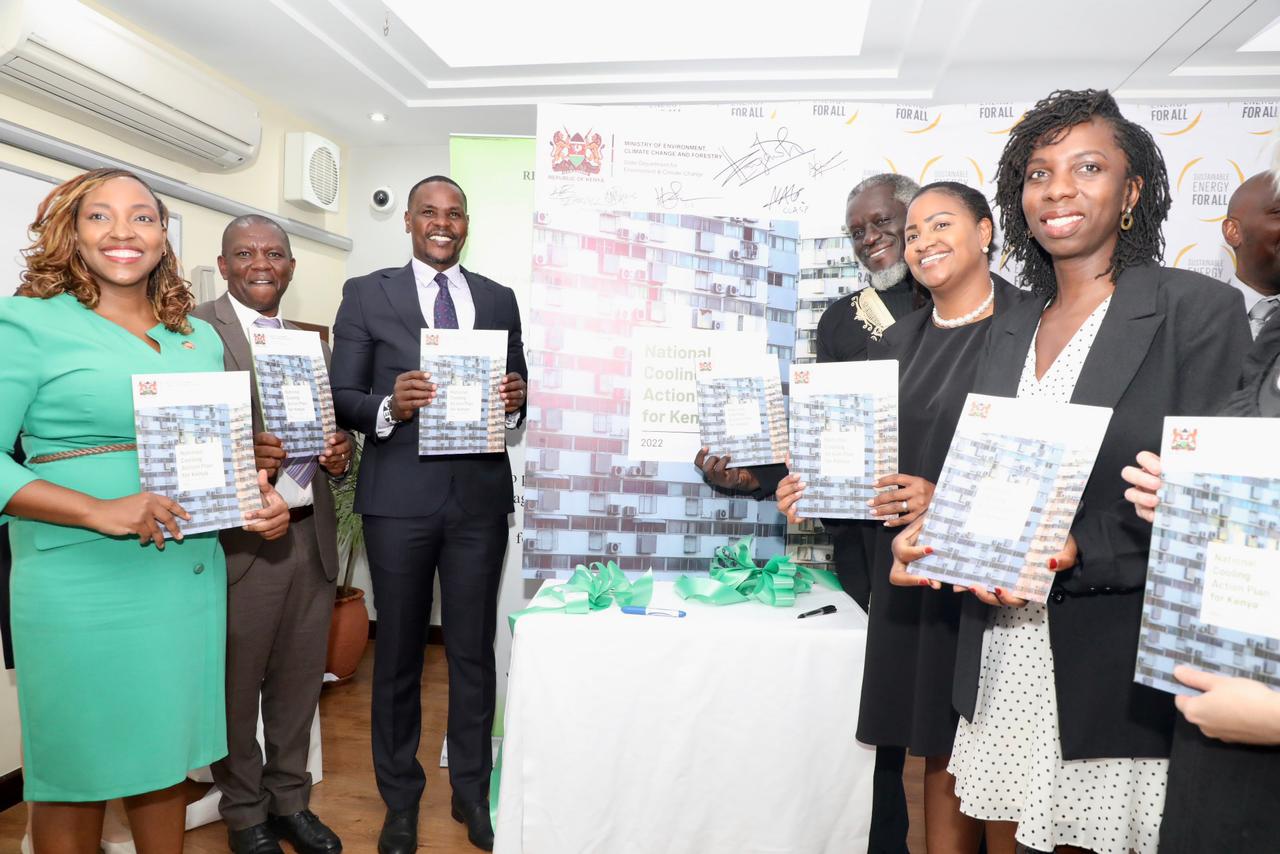Kenya Wednesday unveiled a five-year plan to reduce greenhouse gas emissions from refrigeration appliances by enhancing availability and accessibility of sustainable cooling solutions.
The 2023 to 2027 National Cooling Action Plan for Kenya (NCAP) was unveiled at a Nairobi hotel on Wednesday by Environment and Climate Principal Secretary Eng Festus Ng’eno who said the plan puts the country on a path towards a “green, cool revolution”.
“With this plan in place, we are charting a course towards a more efficient, eco-friendly, and inclusive Kenyan refrigeration and air-conditioning sector.
“Our goal is clear: to make sustainable cooling accessible for every Kenyan by using efficient appliances, environmentally-safe refrigerants, and enhancing access to agricultural cold chains,” Eng Ng’eno said.

Besides making Kenya’s cooling sector eco-friendly as a climate change mitigation measure, PS Ng’eno said NCAP would help Kenya meet her global climate action obligations.
“Kenya’s Nationally Determined Contributions (NDC) has committed to reducing greenhouse gas (GHG) emissions by 32pc or 143MT of CO2 equivalent by 2030. Therefore, providing conventional cooling services poses a challenge to attainment of this ambitious target,” the PS noted.
He said NCAP was part of Kenya’s climate change mitigation strategy of transitioning the country to low a carbon development pathway.
PS Ng’eno said full implementation of NCAP would enhance performance and energy efficiency of cooling appliances, transition the sector climate friendly refrigerants, and increase access to agricultural cold chains.
He said NCAP, which was developed by the State Department for Environment and Climate Change, will create appropriate conditions for adoption of sustainable cooling systems.
“We are talking about providing financial incentives for cold storage systems and making sure everyone understands the incredible benefits of zero-emission cold-chains.
“The action plan will also support research and development that suits our unique local needs. Our goal is to make innovative business models easily accessible to everyone,” PS Ng’eno said.
At the same time, Eng Ng’eno applauded refrigeration, air-conditioning and cooling systems sector stakeholders for increasingly embracing sustainable cooling solutions, and urged them to partner with Government in the roll out of NCAP.
“I urge all stakeholders to actively engage and collaborate in implementing NCAP. By integrating the actions outlined in this document into your institutional framework, we can collectively achieve its goals and make a significant impact,” PS Ng’eno urged.
NCAP was developed through a participatory process that brought together cooling sector stakeholders that included the private sector, academia, state and non-state actors.
It’s development was supported by Kenya’s development partners led by the Government of Germany through GIZ’s Green Cooling Initiative,
Collaborative Labeling and Appliance Standards Program (CLASP), and Sustainable Energy for All (SEforAll).
At the State Department for Environment and Climate Change, NCAP’s development was coordinated by the National Ozone Unit within the Multilateral Environmental Agreements (MEAs) Directorate. National Ozone Unit and MEAs are headed Kirui Marindany and Cyrus Mageria respectively.




